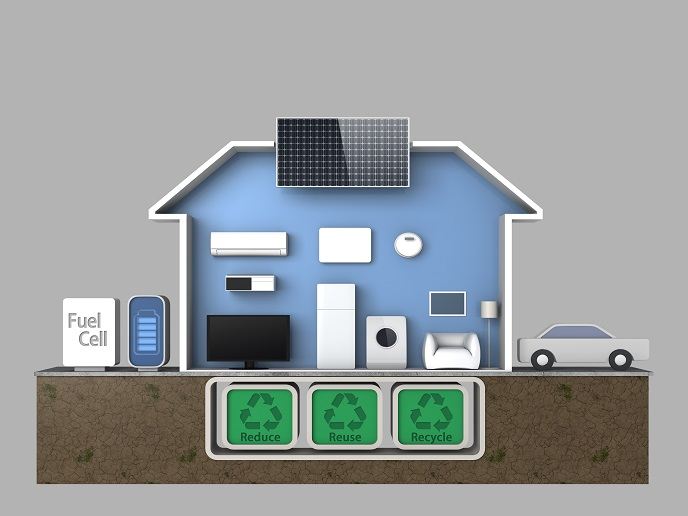Hydrogen fuel cell-based generator for the home
Dependence on fossil fuels for electricity has many drawbacks. Among them, it often results in uncertainty and unreliability of supply due to cost fluctuations in countries of origin, failure of ageing power grids or increasing demand particularly during peak times exceeding existing supply. Until a systematic replacement for fossil fuels is achieved, back-up domestic power generators could become increasingly important. European researchers sought to combine hydrogen fuel cell technology with ultracapacitors for delivery of a complete domestic back-up power system with funding of the ‘Domestic emergency advanced generator’ (DEMAG) project. Proton Exchange Membrane (PEM) fuel cells take hydrogen gas (a molecule of two hydrogen atoms bonded together), split it into hydrogen ions (protons) and electrons at one electrode and recombine the hydrogen with oxygen at the second electrode to produce water. The flow of electrons in the circuit is current for electricity demands. Highly dynamic loads (rapidly changing energy demands) shorten the lifetime of fuel cells. The ultracapacitor comes in as an energy storage device capable of releasing energy to supplement steady supplies and meet peak demands. Scientists developed the DEMAG system to manage domestic power usage during steady-state and transient conditions. An intelligent controller detected power usage of each connected device. The system was capable of switching between PEM fuel cells and ultracapacitors depending on load type and of disconnecting unnecessary loads. The central unit also detected mains blackouts and device failures. In addition to commercialisation of the prototype domestic power generator, individual modules and concepts should be of interest for hospitals and emergency care centres. The DEMAG system could also be modified to detect temperature, pressure and other parameters for intelligent control and switching in numerous applications.







